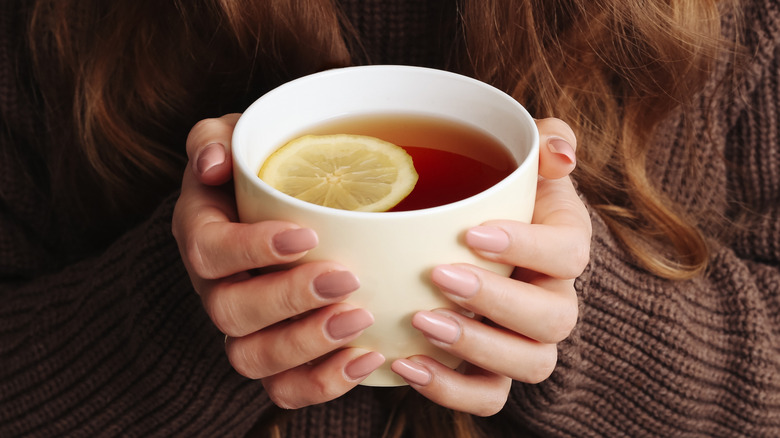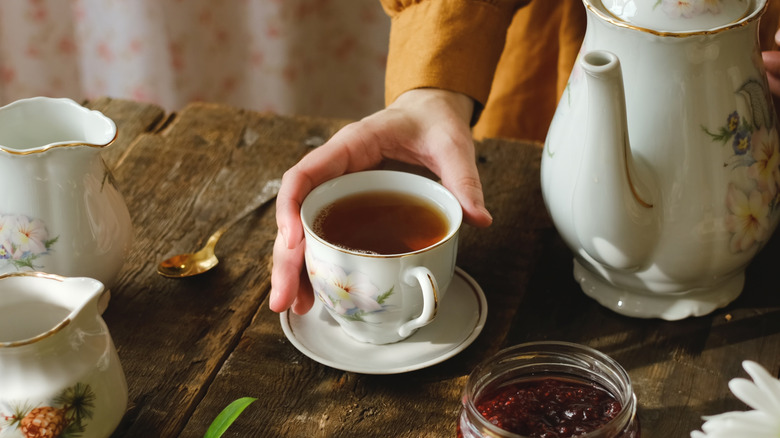How Much Caffeine Is In English Breakfast Tea Compared To Coffee?
Considering switching from coffee to tea for your morning pick-me-up? If you use your morning beverage to help you feel bright-eyed, bushy-tailed, and ready to seize the day, it's key to understand the difference in caffeine content between the two drinks before you make the change. According to the U.S. Food and Drug Administration, a cup of coffee typically has between 113 to 247 milligrams of caffeine, while a cup of English breakfast tea (a black tea blend) typically has about 71 milligrams of caffeine per cup. Keep in mind, there are many factors that can affect the amount of caffeine present in both beverages.
When it comes to coffee, the type of beans used, whether the roast is light or dark, and brewing method can all affect the amount of caffeine. Tea's caffeine content can also vary widely, depending on brewing methods, variety used, steeping time (be careful, as steeping for too long can make your tea taste bitter), the climate in the tea's origin area, and the age of the leaves used. There are some additional caveats that can influence the amount of caffeine in coffee- or tea-based drinks. Straight coffee or tea will have higher levels of caffeine than lattes. In some cafes and restaurants, iced coffee and iced tea are double-brewed, creating a stronger flavor so that drinks don't taste watered down when ice is added (these at-home tips can help you create delicious iced drinks that don't end up watery).
Customizing the caffeine level of your morning tea
Whether you're switching from coffee to tea because you prefer the flavor, you've noticed that coffee leaves you feeling dehydrated, or you want to cut back on caffeine, you have options. Understanding the average caffeine levels in different types of tea can be a good place to start. A cup of oolong tea typically has 30 to 40 milligrams of caffeine. Green tea provides a little less caffeine, at just 20 to 30 milligrams per cup. A cup of white tea contains less than 20 milligrams of caffeine per cup. Herbal teas — like chamomile, peppermint, and berry blends — are caffeine-free.
Matcha tea powder is everywhere lately and is used to flavor ice creams, baked goods, yogurt, and more. Created by finely grinding green tea leaves into a ground powder, matcha powder can offer a delicious way to get a caffeine boost while still enjoying a morning latte. Like a cup of English breakfast tea, matcha typically contains about 70 milligrams of caffeine per cup.

